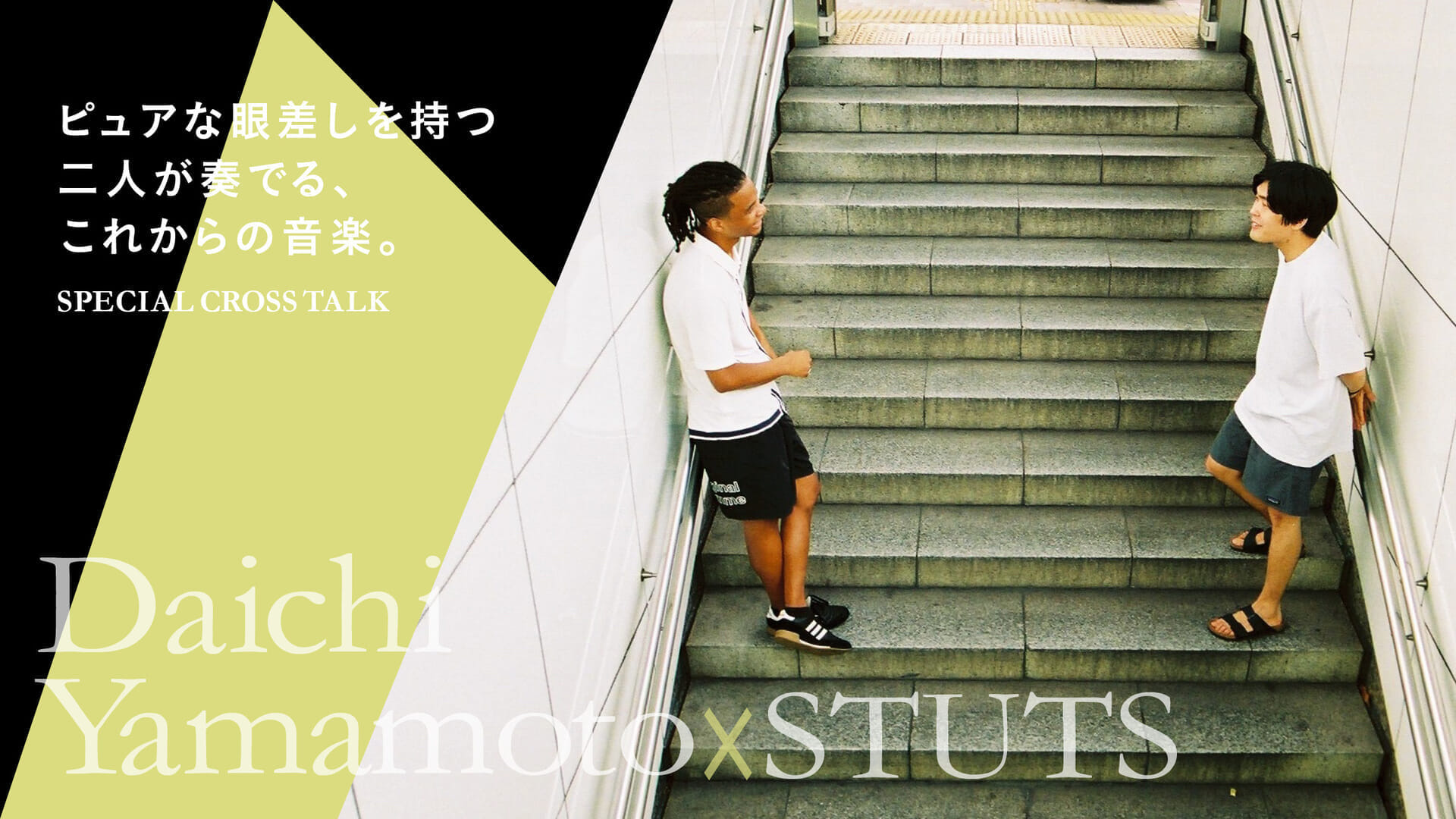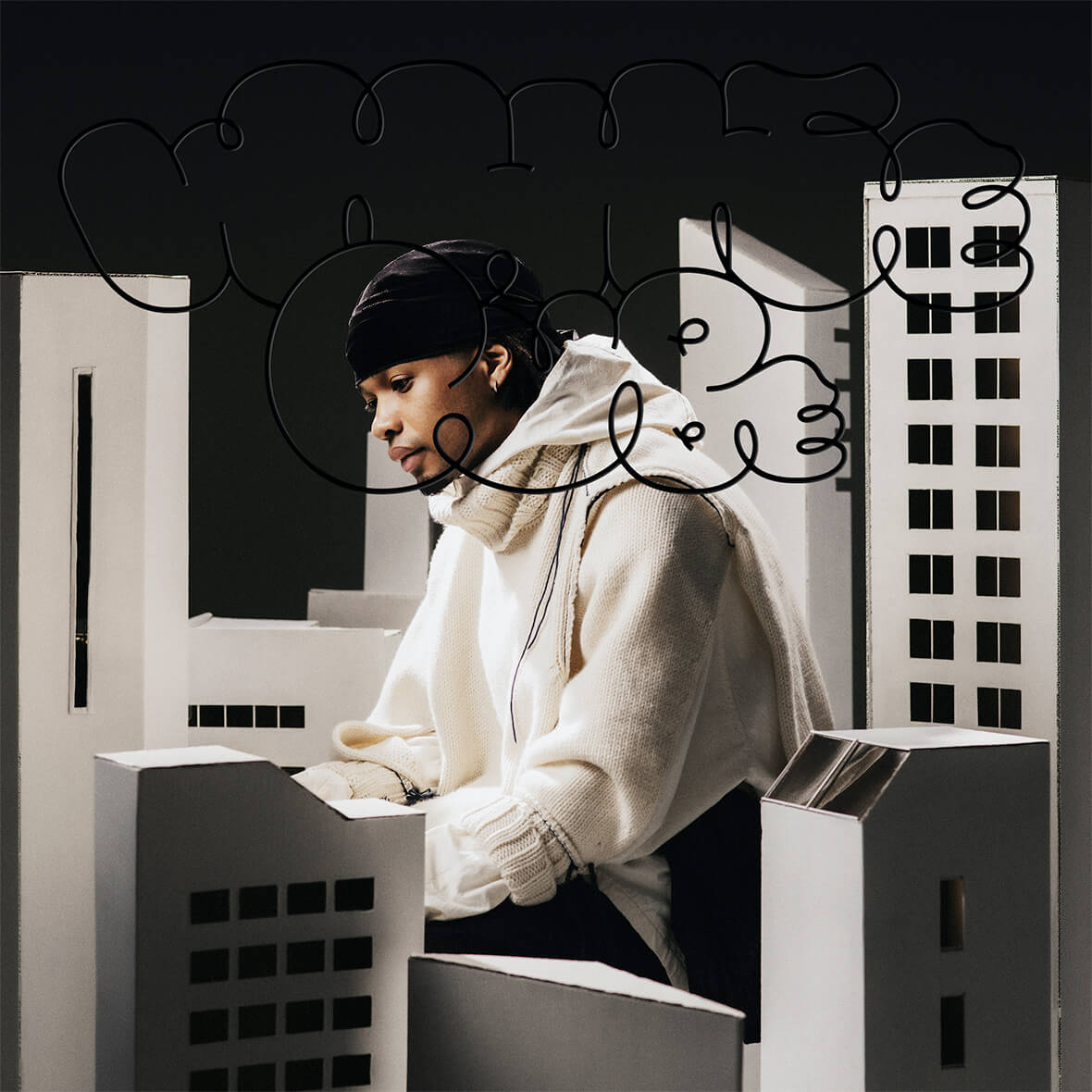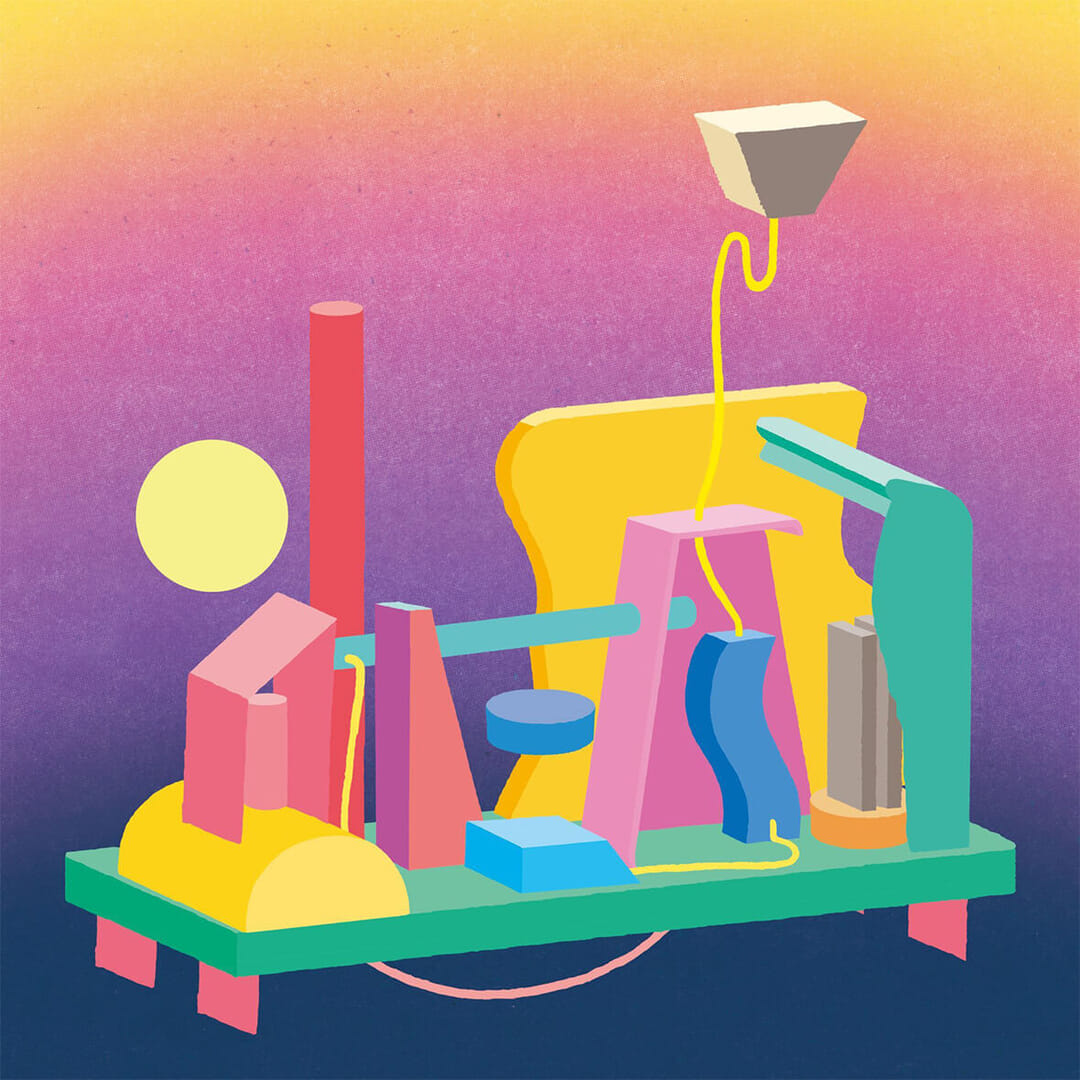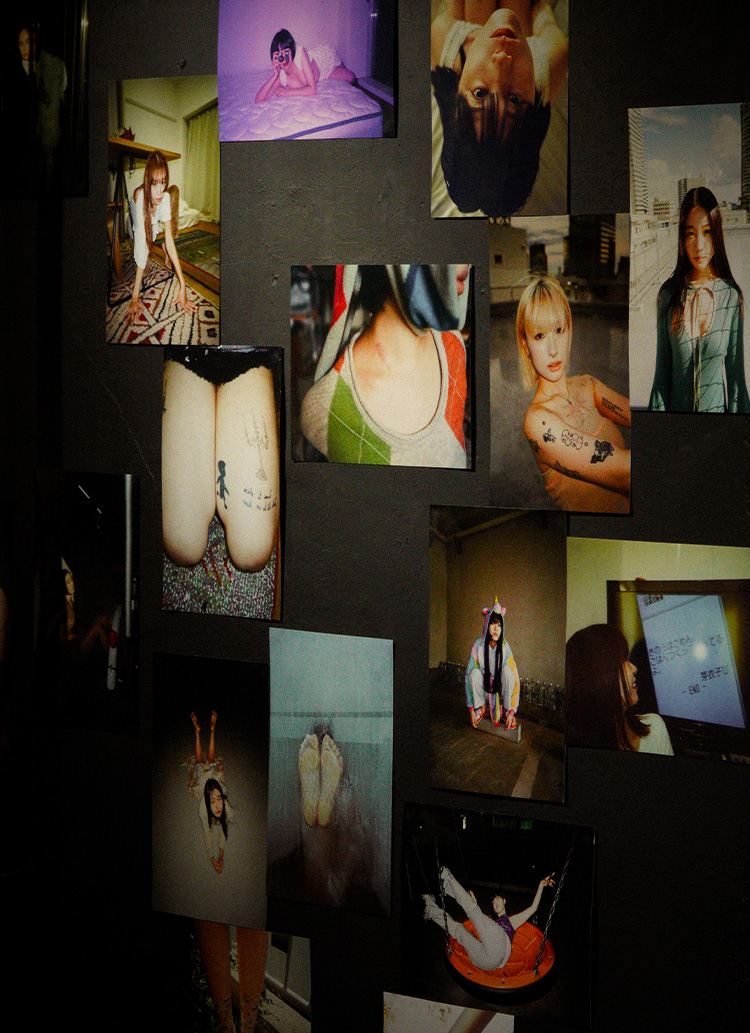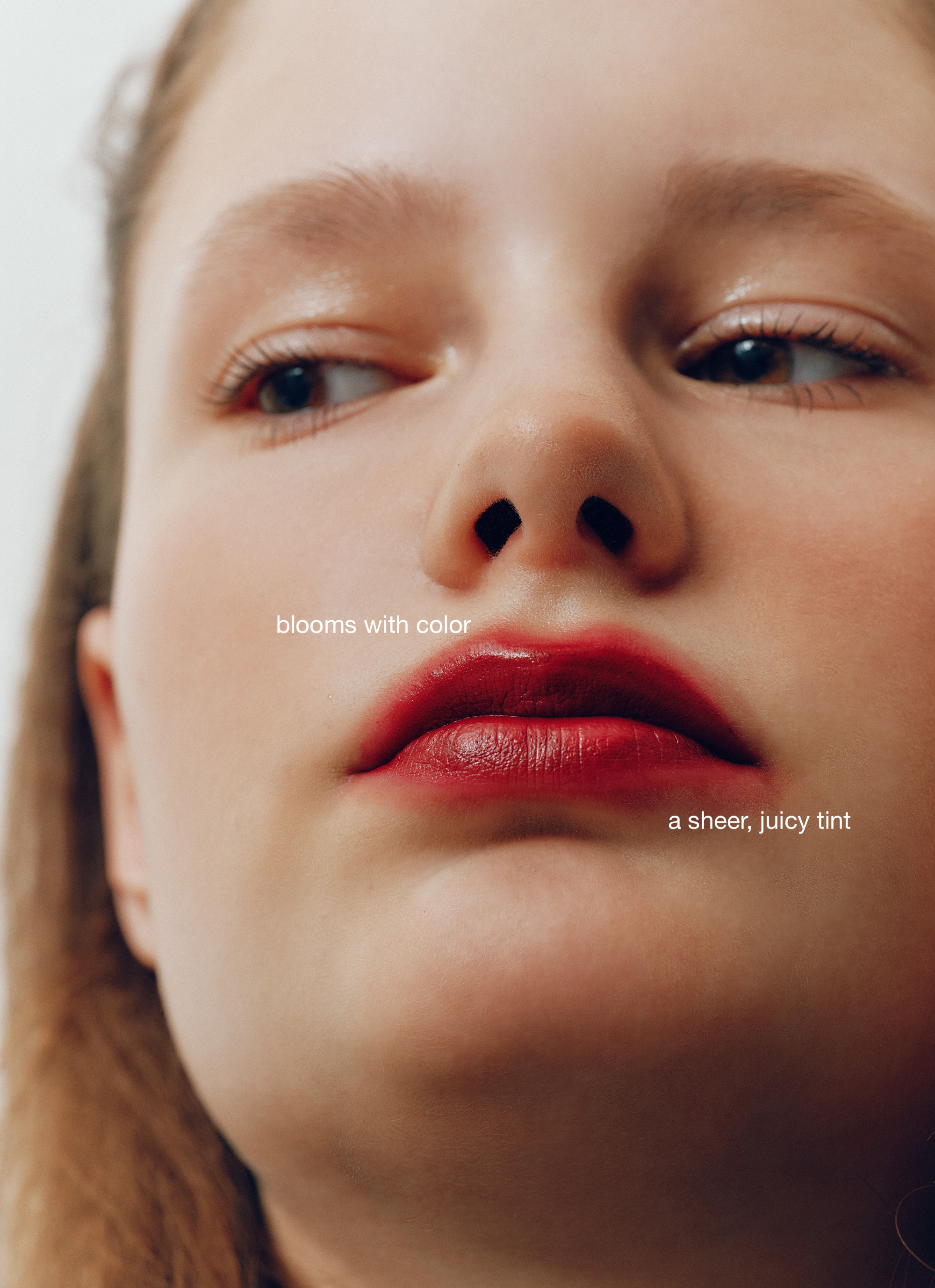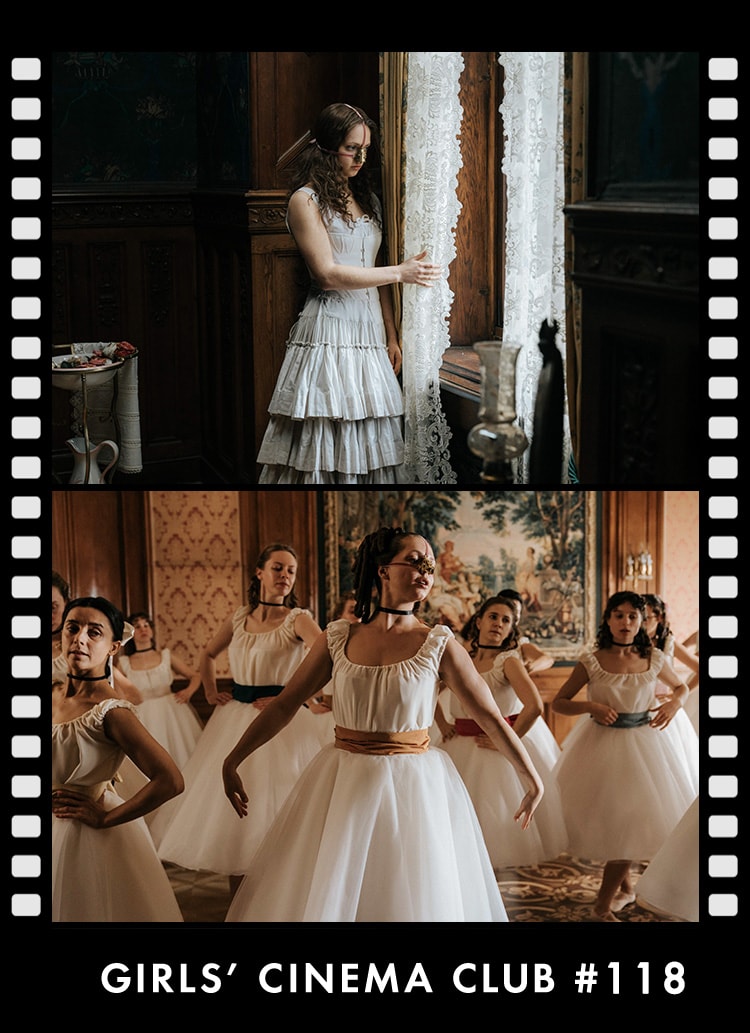After working together several times, we naturally developed an inquisitive mind to try new things with each other. (Daichi Yamamoto)
. Since the two artists came from different styles and backgrounds, I had the impression that "Mirrors" was a song in which your production stood out more than others. Some time later, you collaborated with Daichi for the third time on "Cage Birds" for his latest album, "Whitecube," which was released in June of this year.
Daichi Yamamoto: I had worked with him several times before, so I decided to work with him again, this time on my own album. I thought it would be better to use a song this time around, but when I tried to formulate it, it turned out to be too clear. I thought it would be better to include rap, but I had been doing both rap and vocals on many of my songs, so I wanted to make a difference. At that time, I consulted with Masato-san (who is in charge of A&R for Daichi Yamamoto), and he suggested, "Why don't you have STUTS rap on it? He suggested "Why don't you ask STUTS to rap? It was right around the time that STUTS had just performed his first rap in public, so I thought, "That would be absolutely awesome! and that's how I asked him to do it.
STUTS: I had been thinking that I didn't have to be so active in rapping since the one-man show, but if Daichi said so, I thought I would give it another try. I enjoyed writing lyrics, and I was honestly happy to receive such an offer. In "Cage Birds," not only did I rap, but I also played the drums and bass line for the beat itself from scratch, which was something I had never done before.

Daichi Yamamoto: STUTS did the mixing for this song as well.
STUTS: It took us a long time to flesh out the bass track after it was done. We had to do a lot of re-recording.
Daichi Yamamoto: Yes, that's right. Our goal was simply to make good music, but I think that having worked together several times in the past, we had naturally developed an inquisitive mind to try new things together.
I didn't know there was such a secret story. By the way, did you also produce "Presence IV," the theme song for the TV drama "Soyada, Tomoko and Her Three Ex-husbands," which became a big topic of conversation around this time?
Daichi Yamamoto: Although "Presence IV" was released earlier, the production itself took place around the same time. The production of "Presence IV" was completely different from the previous productions. We started by writing lyrics based on a script that contained a rough draft of the play, but we stumbled right away.
STUTS: Since the production of the drama was going on at the same time, we had a very tight schedule, and I think it was difficult for the participating rappers in that aspect as well. However, when we were actually working on the production, I didn't get the sense that Daichi was worried, so I wondered if he had enough time to spare.
Daichi Yamamoto: Maybe I was desperately trying to keep a poker face so that people would not realize my anxious state (laughs).
STUTS: . haha (laughs). But the verse quoted from 5lack's "Hot Cake" at the beginning got me really excited.
Daichi Yamamoto: Thank you . I'm kind of embarrassed.

The music was sampled, four rappers besides Daichi performed in a relay style, and the actors participated in each episode. In any case, the composition and the way you created the music and the PV were complex, and I imagine you had a lot of difficulty in many areas.
STUTS: For "Presence IV" with Daichi, I had Ryuhei Matsuda participate, and I asked Daichi to write lyrics and sing a test song beforehand as a reference for his singing style.
Daichi Yamamoto: Since it was my first time doing this, I was a bit apprehensive, but Mr. Matsuda also made a lot of suggestions in the latter half and took the initiative in recording, and the process went smoothly. I was helped a lot by everyone.
STUTS: It was my first attempt at producing a theme song for a drama in which rappers appeared in a relay format, so I was full of anxiety about how it would turn out, how I would ask everyone involved, and so on, until the finished work was actually broadcast. On the other hand, there were many aspects that were left to me freely, and I was grateful for that.


